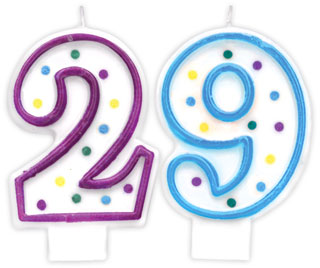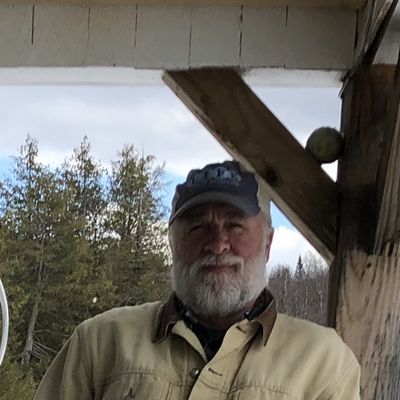
- Jake Giles Netter/HBO Max
- Olsen plays a model citizen whose secret life leads to violence in Max's true crime period piece.
In 1980, a small-town Texas homemaker named Candace Lynn Montgomery killed her friend Betty Gore with 41 strokes of an ax. Montgomery claimed she acted in self-defense; after hearing testimony about her vexed relationship with the victim and her childhood trauma, the jury found her not guilty.
What does this strange tale have to do with us in 2023? Seemingly not much, yet the past year has brought us two limited streaming series about Montgomery's case, both with star power. Last June I reviewed "Candy" (five episodes, 2022; Hulu), which features a surprisingly weird and memorable turn from Jessica Biel as the title character. Now Max offers "Love & Death," a seven-episode dramatization of the same story from David E. Kelley, known for masterminding the legal shenanigans of "Ally McBeal" and "The Practice." Does this new version offer any clues about what makes Montgomery's story suddenly so compelling?
The deal
Candy (Elizabeth Olsen) is a pillar of her community and her congregation. Her engineer husband, Pat (Patrick Fugit), makes enough to support her in style, in a midcentury modern home with a wall oven, but the excitement has fled their marriage.
Hoping to recapture that spark, Candy makes amorous advances to fellow church member Allan Gore (Jesse Plemons). Though he has always been a devoted partner to his depressed, emotionally needy wife, Betty (Lily Rabe), Allan finds Candy's breezy competence irresistible.
After much weighing of pros and cons, the pair has a series of lunchtime liaisons in motels, enlivened by Candy's elaborate picnics. When the affair loses its novelty, each returns to their spouse. No harm done — or so it seems, until the afternoon when Candy goes to Betty's house on an innocuous errand and leaves with Betty's motherless infant wailing in her wake.
Will you like it?
Yes, our cultural fascination with true crime is ghoulish. But it's nothing new (check out the long folk tradition of murder ballads), and it has at least one solid motivation besides schadenfreude — namely, that truth really can be stranger than fiction. While novelists and dramatists are bound by the rules of plausibility and consistency, real people sometimes do things that don't seem plausible or consistent at all.
Candy Montgomery is Exhibit A. Both series pivot around the mystery of what turned a seemingly model wife and mother first into an adulterer, then into a killer. While the story has oddly modern elements, its retro setting carries an exotic allure for today's viewers, who can only imagine being able to support a lifestyle like the Montgomerys' on a single income.
In this world, women make everything happen, while men passively resist. Pat and Allan are tech workers whose closed-off demeanors suggest they'd rather be playing video games than attempting to relate to their wives. While Candy's lifestyle has all the "trad wife" trappings, there's never any doubt that she's the dominant party in her marriage. Frustrated in her attempts to coax passion from Pat, she turns to another man who turns out to be just as stodgy as the one she left.
Even before Candy becomes infamous, her story has all the tragicomic elements of Madame Bovary: She wants something more, but what? It would be easy to say her problem is lack of meaningful work outside the home. But Candy revels in domesticity, and clearly it has meaning for her. Her dissatisfaction runs deeper; she's won at small-town life, yet she can't stop searching for new games to win.
Overall, Hulu's "Candy" presents the stronger version of the story. Its austere palette evokes the '70s I remember, while "Love & Death," with its yellow telephones and steady stream of vintage hits on the soundtrack, presents that world through a veil of self-conscious nostalgia. Both Rabe and Melanie Lynskey are excellent choices to play Betty, bringing out her eccentricity — neurodivergence or mental illness, we might say nowadays — without mocking her. But "Candy" delves deeper into Betty's prickly character and gives her her due — even in the courtroom, where Candy ultimately triumphs.
Fine performances buoy "Love & Death," but Kelley trades the deadpan absurdity of "Candy" for a sometimes more sitcom-adjacent humor. Olsen's mannered interpretation is witty but a little cloying. Though both versions confront the ugly facts of the crime, "Candy" does so more elegantly, using surreal touches and strategic absences to acknowledge that we can never really know what happened in the Gores' house that day.
It's a testimony to the strength of this cocktail of camp, nostalgia and feminist hindsight that one version doesn't cancel out the other. Our modern takes on Candy Montgomery's tale reveal perhaps more about ourselves than they do about her. But only "Candy" turns the gaze back on the viewer, reminding us that every tale of "true" crime is at best a rough approximation.
If you like this, try...
"American Crime Story," season 1 (10 episodes, 2016; FX, Hulu, rentable): Ryan Murphy kicked off the trend of critically examining another era's tabloid fodder in the prestige TV format with his acclaimed drama about the O.J. Simpson case.
"Dirty John" season 2 (eight episodes, 2020; Netflix): The second season of Netflix's docudrama anthology tells the story of socialite Betty Broderick's murder of her ex-husband, highlighting the period setting in a similar way to "Love & Death."
"The Staircase" (eight episodes, 2022; Max): Colin Firth stars in this drama series based on a murder trial best known through a 2004 documentary, a circumstance that creator Antonio Campos uses to explore the nature of true crime storytelling itself.








Comments
Comments are closed.
From 2014-2020, Seven Days allowed readers to comment on all stories posted on our website. While we've appreciated the suggestions and insights, right now Seven Days is prioritizing our core mission — producing high-quality, responsible local journalism — over moderating online debates between readers.
To criticize, correct or praise our reporting, please send us a letter to the editor or send us a tip. We’ll check it out and report the results.
Online comments may return when we have better tech tools for managing them. Thanks for reading.